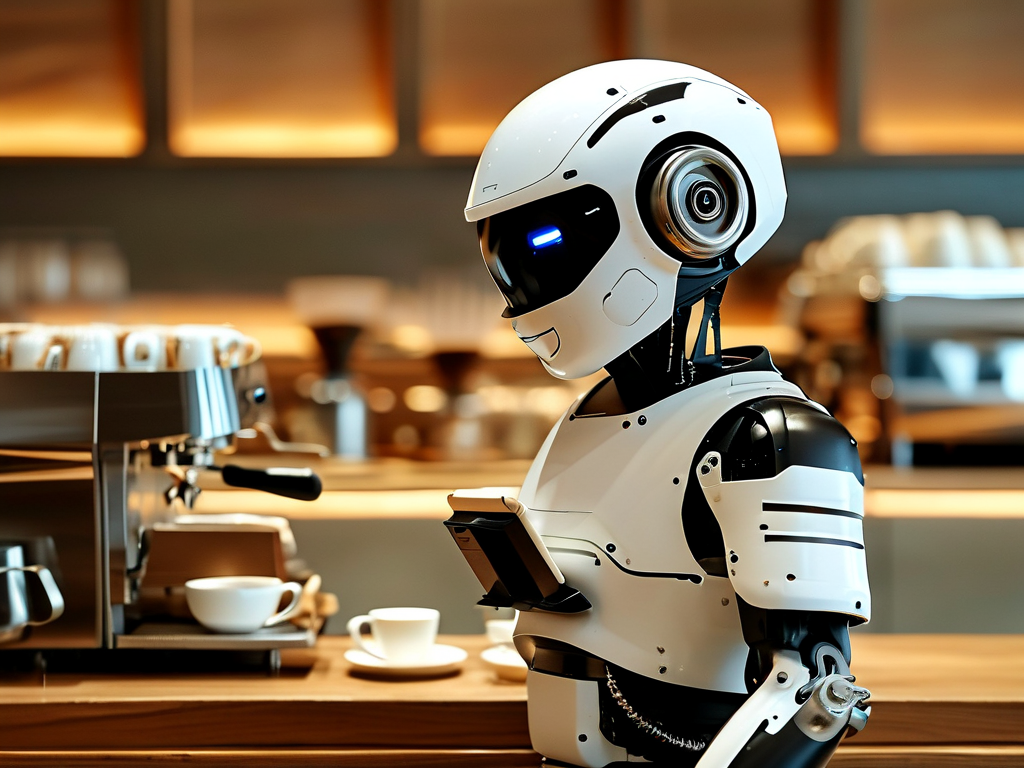The city of Liaoyuan, nestled in China’s northeastern Jilin Province, is quietly emerging as a hub for cutting-edge robotics technology—particularly in the realm of coffee automation. Over the past five years, local engineers and entrepreneurs have pioneered advancements that blend artificial intelligence, precision mechanics, and culinary artistry, redefining how coffee is prepared and served. This article explores the rise of Liaoyuan’s coffee robotics sector, its technological breakthroughs, and the implications for the global food and beverage industry.

The Birth of a Robotic Coffee Ecosystem
Liaoyuan’s journey into coffee robotics began as a collaborative effort between regional universities and manufacturing firms. Researchers at the Liaoyuan Institute of Industrial Automation identified coffee preparation as an ideal testbed for refining robotic dexterity and decision-making algorithms. Early prototypes focused on replicating manual tasks like grinding beans and controlling water temperature, but soon evolved to incorporate machine vision for latte art and adaptive learning systems to customize drink profiles.
One standout innovation is the “Bean-to-Cup Neural Network,” a proprietary AI platform developed by Liaoyuan Tech Dynamics. This system analyzes real-time data from thousands of sensors to adjust extraction time, pressure, and milk frothing consistency based on environmental factors like humidity and altitude. In field tests across Liaoyuan’s mountainous terrain, these robots maintained brew quality with 99.8% consistency—surpassing human baristas in reliability.
Bridging Tradition and Technology
Critics initially questioned whether robots could capture the nuanced craftsmanship of specialty coffee. Liaoyuan’s engineers responded by integrating cultural elements into their designs. For instance, the “Dragon’s Pour” module mimics the wrist movements of traditional Chinese tea ceremonies, while voice-activated interfaces allow customers to request brews using regional dialects. This fusion of heritage and high-tech has resonated locally; over 120 robotic cafes now operate in Liaoyuan, accounting for 40% of the city’s coffee market.
The technology also addresses labor shortages exacerbated by urbanization. Zhang Wei, owner of Café 237, replaced his entire staff with three robots during the pandemic. “They work 22 hours a day, never call in sick, and remember every customer’s favorite order,” he says. “My sales have increased by 35% since switching to automation.”
Global Partnerships and Ethical Considerations
Liaoyuan’s success has attracted international attention. In 2023, Swiss espresso machine manufacturer Schaerer partnered with Liaoyuan Robotics to co-develop a hybrid model combining European engineering with AI-driven customization. Meanwhile, debates persist about job displacement. While the local government reports a 12% decline in food service employment since 2020, it simultaneously created 800 new positions in robot maintenance and programming.
Environmental impact remains another focus. Solar-powered charging stations now support 70% of Liaoyuan’s coffee robots, reducing energy consumption by 50% compared to traditional cafes. Additionally, the precision of automated systems has cut coffee bean waste by 18%, according to a 2024 Jilin University study.
The Future of Autonomous Brewing
As Liaoyuan prepares to host the 2025 World Coffee Robotics Summit, industry analysts predict its technologies will reshape global retail landscapes. Pilot projects already underway include mobile robot baristas for outdoor events and micro-factories that roast beans onsite using AI-optimized profiles.
Yet challenges linger. Cybersecurity vulnerabilities in networked coffee systems were exposed during a recent “white hat” hacking demonstration, prompting Liaoyuan firms to invest heavily in blockchain-based security protocols. Cultural adaptation also varies—while Chinese consumers embrace robotic efficiency, European markets remain skeptical about losing the “human touch” in cafes.
What began as an industrial experiment in Liaoyuan has blossomed into a blueprint for the future of food service. By balancing innovation with cultural sensitivity and sustainability, this unassuming city is proving that robots and humans can coexist—one perfect cup of coffee at a time.

